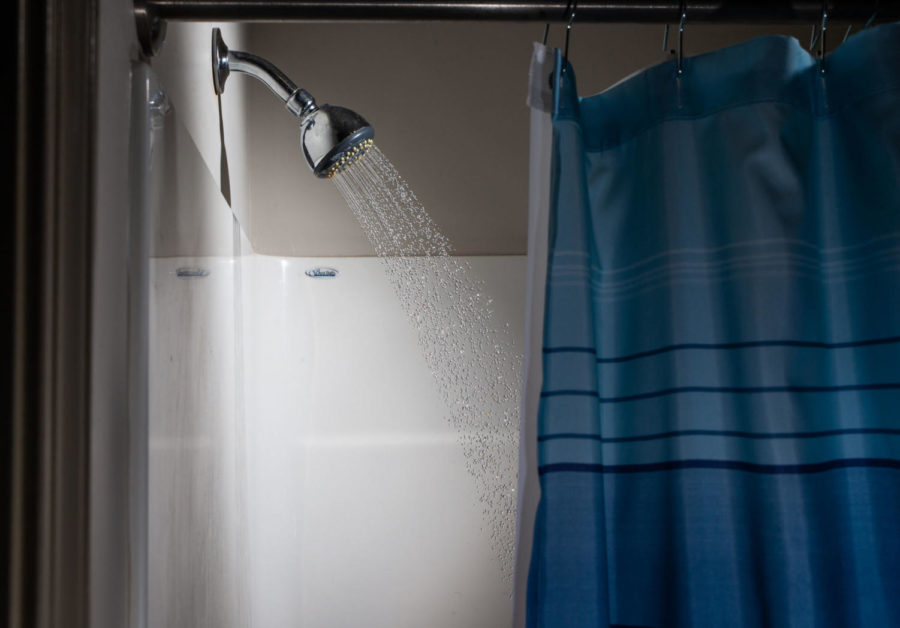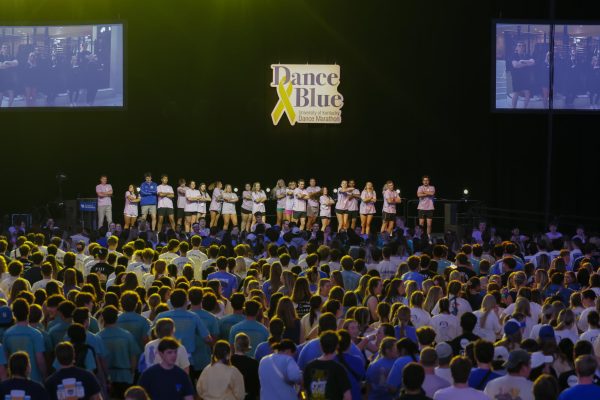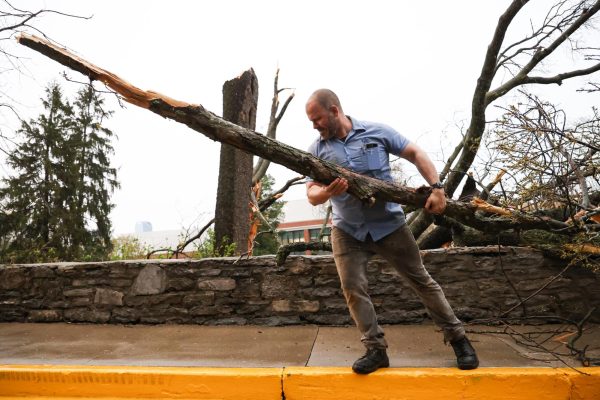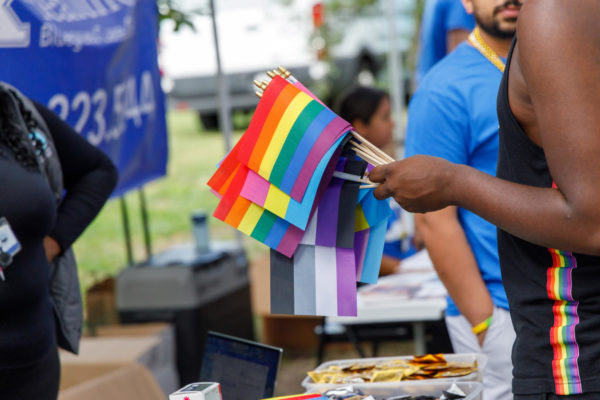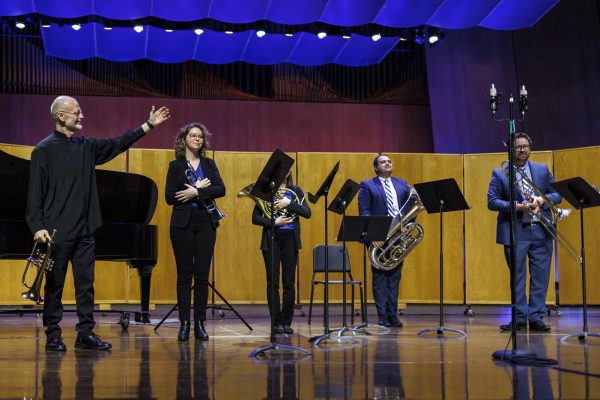Parts of some UK dorms have lacked adequate hot water for months
March 5, 2020
At first, Ashley Konen didn’t think anything was wrong.
New to Kentucky and new to UK, Konen had never lived in an apartment or dorm-style housing before. So when her shower water would not heat up, she thought it was her fault.
“I just thought maybe I have the knob wrong, because occasionally in August it would be semi-decent,” said Konen. She would let the water run for a few minutes, and occasionally the water would heat up, and for a while, she thought the issue would resolve itself.
A freshman biology major, Konen is one of potentially hundreds of UK students who have dealt with a hot water shortage this school year. She and her roommate lived on the fourth floor of Woodland Glen II—the floor most affected by a hot water shortage that was worsened by university — and contractor-attempted solutions over winter break.
Konen said that is was not until October 2019 that members of her floor realized the hot water shortage was widespread. By the spring semester—with almost no hot water in her room, and weeks of either frigid, hand-turning-purple showers or showers at friends’ dorms—Konen and her roommate agreed to be moved by the university.
According to dorm maintenance records, which were obtained by the Kernel through open records requests, students submitted 274 complaints of hot water issues in the 2019 – 2020 school year, as of February 16. These complaints were submitted to Fix-It, the auxiliary service form UK uses for dorm maintenance.
Information provided by UK housing stated that in 2018, there were 35 Fix-It submission related to hot water, 7 in 2017 and 23 in 2016.
According to information provided by UK Housing, those complaints came from at least 85 distinct rooms in the Woodland Glen complex. Complaints have come from four buildings – Chellgren Hall, Woodland Glen II, Woodland Glen III and Woodland Glen IV. Those buildings have two-bedroom suites and together, the capacity for 2,178 residents.
The cost of living in these two-bedroom suites is $4,684 per person, per semester for the 2019 –2020 school year, UK’s online housing rates show.
The hot water shortage has been overwhelmingly concentrated in Woodland Glen II; 234 of the Fix-Its came out of that building. Woodland Glen IV had 38 submissions and one submission each from Chellgren Hall and Woodland Glen III.
Garret Buehner, executive director of housing operations for UK campus housing, said there was no concern of the same hot water shortages happening in other dorms.
“We obviously did a review of all the work orders just to see if there’s anything abnormal like this going on, and this clearly identified as the one building that something is happening and so we’ve put a lot of focus on that,” said Buehner.
‘They kept telling us to submit Fix-Its and nothing got better’
The first Fix-It related to hot water was submitted on August 18—eight days before classes started in the fall semester.
Brandon Sarett, a freshman who lives on the fourth floor of Woodland Glen II, started to notice hot water problems in October. He said he knew people who had had the same issue in previous years.
Konen said her floor started to get more active about submitting Fix-Its in October.
“By the time Thanksgiving came around it was starting to get really, really bad, like never warm ever. It wouldn’t even get to lukewarm, it was icy 95 percent of the time,” said Konen.
She said that going into finals week, the water was freezing even if it was 2 p.m. and nobody else in the building was showering.
“Everyone at that point was kind of like, ‘We’re going on winter break. They’re going to fix it because we’re gone for a month,’” she said.
Buehner said that UK Housing began to look into the hot water issue when Fix-It submissions hit 30 for the calendar year of 2019.
“We’d do water temperature tests and at those times we were seeing temperatures that were good, but continued to have more complaints,” said Buehner.
A fix that fails
UK’s first attempt to remedy the problem was to have the companies who helped develop the buildings come in for a review of the mechanical room, according to Buehner.
Buehner said that Messer Construction, which was the general contractor during construction, and their sub-contractor TP Mechanical came in to review the hot water issues at Woodland Glen II.
“The architects, the engineers, all the mechanical people that had built the building were brought back in to say we want you all to take a look at this because we know you’re the experts behind the design and the building,” said Sarah Fallin Nikirk, executive director for auxiliary services.
Sarett said he was told the hot water issues would be fixed over winter break.
Buehner said that UK worked on changes over winter break per the recommendations of the manufacturers, and that his office educated students and parents that those repairs would have to wait until December.
“We’ve been very open that we’re trying to fix this, we’re doing everything we can,” said Buehner.
He said that over winter break, UK followed a manufacturer recommendation to re-pipe.
“These two pipes should have been switched in their design and so that was the major one we did and when we did that that it was what changed the whole scope of the issue to being larger,” said Buehner.
The timeline provided by UK housing said that in all of 2019, there were 45 complaints of hot water issues.
In January and February of 2020, the two months immediately following the repair, students submitted 245 Fix-Its related to hot water.
“Clearly whatever we did escalated the issues,” said Buehner of the increase.
Konen said she did not have a single warm shower after winter break.
“I was really excited over winter break thinking ‘oh yes, I’m going to have hot water when I get back to school,’ and then we got back from break and it wasn’t fixed,” said Sarett.
Buehner said that after the December repairs failed, they brought in outside experts.
“Obviously we were hopeful that that work would make everything better,” said Nikirk. “Well, it made it not better. In fact, it was just a bit worse, and so at that juncture was when Garret and team brought in some outside engineers.”
The timeline provided by Nikirk and Buehner said on January 22, the general contractor, architects, engineers and consultants met to “discuss and review hot water issues in order to find a solution.”
‘Complicated buildings’
On January 29, an independent engineering firm reviewed the hot water issues.
Currently, Buehner said that housing officials have a plan for the next phase of solutions in, which is scheduled for spring break in Woodland Glen II.
“We think there might be some sediment build-up that could be causing some of these concerns,” said Buehner.
He said the first step will be to flush out the entire hot water system including the hot water heaters and storage tanks.
“That flush takes 48 hours and in order to do that, we have to shut off water to the entire building, hence why we’re waiting till spring break,” he said. “We don’t want to impact 409 students not having water for two days.”
He said that they will also inspect the isolation valves in each riser – the vertical pipes that connect showers to the water supply.
The hot water issues are all related to one riser, Buehner said, and they will inspect or replace the valves. That process will have the added benefit of making future repair work easier.
“What that allows us to do is moving forward, instead of having to shut off water to the whole building, what we can do is isolate that stack, work on that stack for four, six, eight hours, whatever we need to do, and turn it back on so we’re not extending the time frame,” he said.
Those repairs will be on a building-level, but Buehner said they will also do work in individual rooms.
His team will replace mixing valves and shower cartridges, which are located behind the shower handle.
“Just thinking that there also might be sediment, if it’s coming through the system, it’s probably stopping at the end of the line which would be your shower cartridge valves and mixing valves,” he said.
Buehner said the water has been tested and is safe for consumption.
“Additionally, the sediment, if the cause, would not compromise the quality or safety of the water,” said Buehner.
Buehner said that the scheduled repairs will hopefully be a permanent fix, but, “as December showed, even though we went through manufacturer’s recommendation these are very complicated buildings.”
If the spring break changes are not a permanent solution, Buehner said the best option for students at that point it to move.
Buehner: “We’re still going to continue to work on ways to fix it, but we don’t want students staying in those rooms if it’s not – ”
“ – a good situation for them,” finished Nikirk.
A Waiting Game
“Everyone that we’ve talked to has been offered the opportunity to move, and that’s important to note,” said Nikirk. Eight students have moved so far; some to Haggin Hall and Lewis Hall and others to different rooms within Woodland Glen.
Nikirk said that roommates can stay together and the housing office will help students move.
“We give them boxes, we give them tape, we’ll actually help them pack and actually help them move their belongings and have done that,” said Nikirk.
“It’s just if for some reason someone has decided I want to stay, because I like my floor or what-have-you, basically it’s really their choice to stay at that junction,” said Nikrik.
The timeline provided by Nikirk and Buehner said that on January 27, all students who had submitted a hot water-related Fix-It were sent an email offering the chance to transfer dorms.
Konen and her roommate moved out of Woodland Glen II and into Haggin Hall three days later. They did not initially want to move, she said.
“It’s a huge hassle to move out of your dorm as a freshman,” Konen said. “I don’t have a car, my roommate doesn’t a have a car, we didn’t really want to do that.”
But after the December repair attempts, the water pressure got worse and she started looking into moving.
Konen said she was able to get into closer contact with housing after her parents stepped in.
“I was emailing people and submitting things and nobody was even like responding at all,” said Konen. “It’s kind of funny cause it took my mom emailing to get a response, which is sad, but that’s OK.”
After housing offered tabling in the lobby of her dorm, Konen said she met someone who “was really nice and kind of took charge” and helped her move.
Housing assignments staff were in the lobby of Woodland Glen II in January, said Nikirk, to directly help students with moving.
“We know moving is not the number one option for students in this scenario,” said Buehner. “That’s why we have staff available from the assignment office in the hall.”
Konen said being in a different dorm was not a big deal, but that the stress of the process had a bigger impact.
“I think more of the deal that’s made my time at UK worse than it should have been was having to deal with all the problems of the old dorm, not being able to shower or having to step into freezing water,” she said.
While she was living in Woodland Glen II, her roommate and her started taking navy showers – “we would stand outside and get the soap and then run in and try.”
“Your hands would turn purple, it was freezing, and there’s nothing you can do about it,” she said. Eventually, she resorted to using other peoples’ showers.
“It’s kind of awkward to ask someone to use their shower, especially when you’ve only known them max five months. They just had warm water and they knew I didn’t,” said Konen. She said she would pack a with shower supplies bag and walk over.
“The people I’ve met are super nice obviously and they were super nice about it, but it was kind of awkward,” said Konen. “It’s better than being dirty.”
‘We still want our water fixed.’
In addition to the option to move, students who submitted Fix-Its prior to a certain date were offered a $250 gift card.
Konen and Sarett agreed that while the money is nice, it does not fix the water problem.
“It was like they offered it to somehow make up for the six months they didn’t fix the water and people took cold showers, and they tried to give some monetary compensation,” said Konen.
“That was a nice incentive, but we still want our water fixed,” said Sarett.
Buehner said the most important thing for students who stay in the affected rooms is to continue submitting Fix-Its. The timing and frequency of the submissions will help his team analyze the issue, such as if the shortage is related to peak times where lots of students are showering.
“We’re encouraging students to try and find times in their schedule to try and find times that still work in their schedule and we’ll continue to go up there and look at everything, feel the pipes and see if they’re cold coming in,” said Buehner.
Sarett, who did not want to move dorms and does not get out of class until 6 p.m., has to wait until midnight or 1 a.m. to shower.
“I just can’t stand in the shower at a freezing cold temperature,” said Sarett. “I would rather just wait. I just can’t do that.”
The worst part for him is having to wait up so late at night for a warm shower, he said. The technicians come check his water while he is in class and leave a note saying his water is fine.
“I responded to that, I was like: ‘It doesn’t matter to me if it’s hot while I’m in class, cause I can’t shower while I’m in class,’” he said.
Buehner said resident advisers have been told to listen to the student, let them know housing is continuing to work on the situation and reach out to the area director with anymore questions.
“The best recommendation from us at this point as we schedule these repairs for spring break and again remind them that we’ll pack the room for them, we’ll supply moving supplies, we’ll get golf carts to move them all over and make sure they’re moved in and ready to go in their new place,” said Buehner.
Will students come back to the dorms?
As students apply for housing next year, how will the hot water shortage affect students in a year that already saw a dorm shortage?
Sarett said he will not live in the dorms again next year. Buehner said the hot water issues can definitely have an impact on student housing applications, “especially when you look at students that lived in Woodland Glen II and want to renew but are having these concerns.”
For Konen, the hot water shortage was an unnecessary source of stress.
“Freshman year has been good, and classes are good and it’s a good university, but I feel like being able to get clean is a constant that a majority of people around here have in their life and not having that and having to go out of your way to find ways to make it possible, it was definitely stressful,” she said.
Konen said she felt like the university was not direct with what they were doing about the hot water problems.
“It made you feel helpless for a while,” she said. “I didn’t have the ability to fix it and multiple people that I knew were reaching out to get it fixed and there was nothing we could do.”
Buehner said people on his staff oversee communication with students and parents.
“We try to talk to students because they’re the ones impacted, they give us the most recent information and stuff we need to work on,” he said.
Both Sarett and Konen’s mothers contacted housing, and Konen said her roommate tried to get her parents involved as well.
Buehner said 26 parents have contacted his office, a number that went up when students came back in January and additional rooms were impacted.
“We always have an open door,” said Nikirk. “If someone has a question, we are happy to talk with them, and we have.”
Konen said she felt frustrated by a lack of response to complaints.
“I feel like in college, you should be able to reach out and handle things on your own, but when people don’t respond to you or they don’t respond to the Fix-It reports and nothing’s changing – it’s like we’re adults here, but the parents are the real adults,” she said.
Sarett said his main frustration with the hot water issues was that he was told it would be fixed over winter break and is still having issues into February. Konen said she was also frustrated by the time frame.
“Sometimes you have a problem and you have to give time for it to be fixed, right? Things don’t just happen overnight, but it was like six months. And I would say six months is plenty of time to fix a problem, I would say one month, maybe two, should be ample time to at least have a game plan,” said Konen. “And it was more than that, and we had times where we weren’t even at the university and still it wasn’t fixed, it got progressively worse. It gave a feeling of helplessness because I don’t know how to fix the water and I didn’t have anywhere to go.”
















































































































































